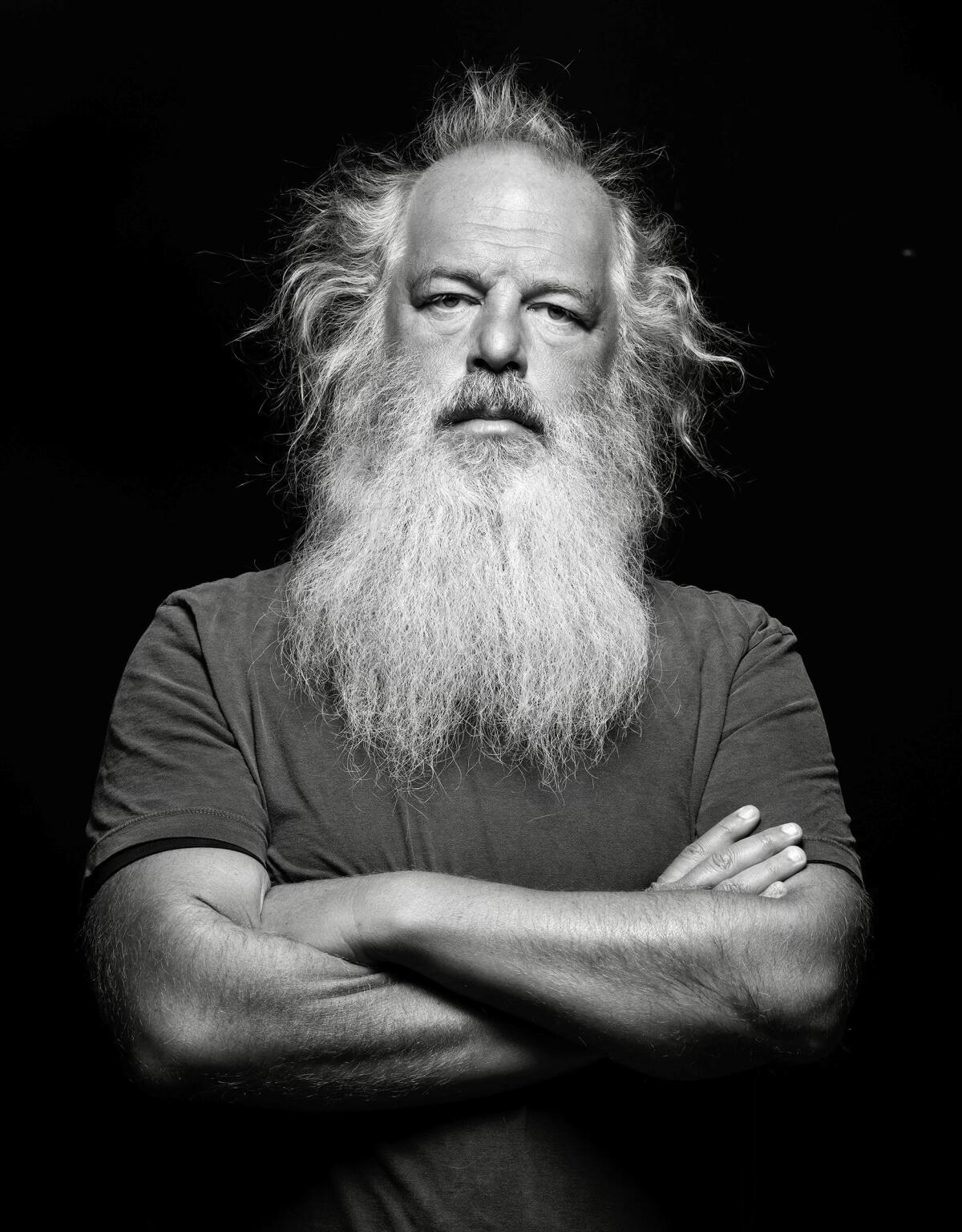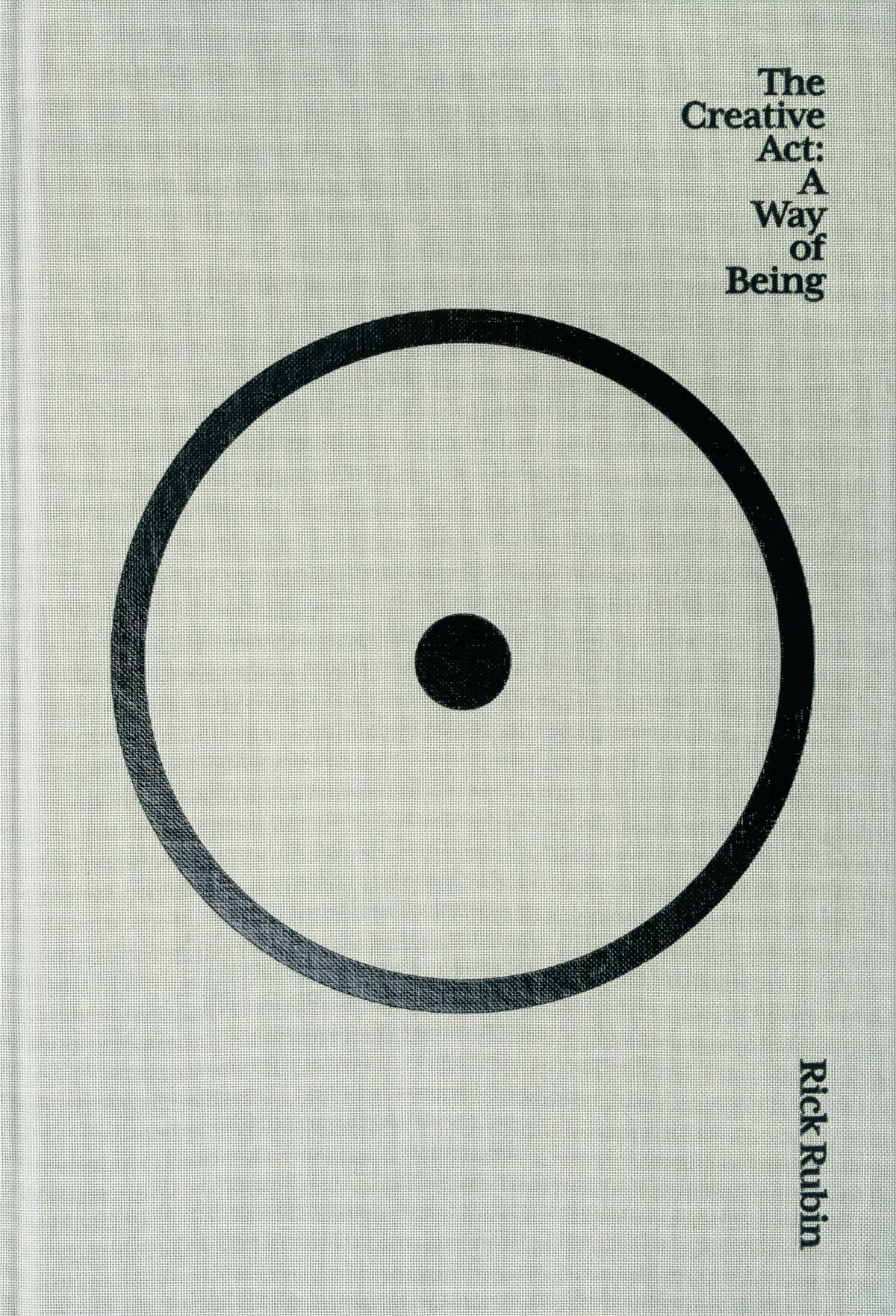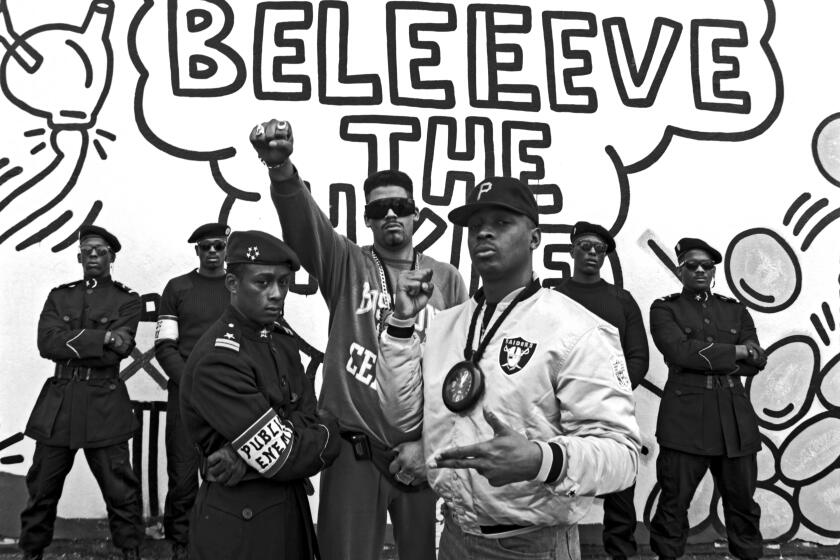Can Rick Rubin’s creative genius rub off on you?

- Share via
Review
The Creative Act: A Way of Being
By Rick Rubin
Penguin: 432 pages, $32
If you buy books linked on our site, The Times may earn a commission from Bookshop.org, whose fees support independent bookstores.
In 1984, Ronald Reagan was president; “Beverly Hills Cop” topped the box office; and Rick Rubin, a Jewish NYU student with an abiding love for hard rock, punk and rap, joined forces with Black music manager Russell Simmons to give fledgling Def Jam Recordings the creative boost it needed to become a hip-hop juggernaut. His dorm room initially served as Def Jam’s headquarters.
Over the next few years, Rubin produced or executive produced several hip-hop classics, including “Radio” by LL Cool J, “Raising Hell” by Run-DMC, “License to Ill” by the Beastie Boys and Public Enemy’s “It Takes a Nation of Millions to Hold Us Back.” Rubin’s minimalist, sparse production style, combined with the mellow vibes, sensitivity and unflagging encouragement he brought to the studio, helped these and other artists unleash their creativity.
In 1988, he left Def Jam and headed to L.A. in search of fresh sounds and a new beginning. If the story had ended there, Rubin would still go down as one of music’s most important producers. But he was just getting started.
Jonathan Abrams’ ‘The Come Up: An Oral History of the Rise of Hip-Hop,’ goes beyond New York’s marquee names to chart the growth of a national movement.
Over four decades, Rubin has produced everyone from the Red Hot Chili Peppers to Slayer to Tom Petty. Rubin revived Johnny Cash’s flagging career over the course of several albums that stripped the Man in Black down to his emotional core. Along the way, the shaggy bearded, Zen-like impresario has picked up nine Grammy awards, most recently for his work with the Strokes. Rolling Stone has named him the most successful producer in any genre.
Now, Rubin has distilled his hard-earned wisdom into a book about creativity and how to access, nurture and liberate it in the service of great art. For the most part, “The Creative Act: A Way of Being” succeeds on these terms, although readers can find many of the same ideas in myriad self-help, business and spiritual books. The difference is in the telling, which, with the assistance of writer Neil Strauss, is clear, convincing and engaging.

To Rubin, art is the ultimate form of self-actualization, a noble calling that enriches the soul. “The reason we’re alive is to express ourselves in the world,” Rubin writes, “and creating art may be the most effective and beautiful method of doing so.”
So, how does an artist move from conception to creation? Rubin methodically lays out the process, offering a mixture of encouragement, inspiration and tips.
Artists of all types, according to Rubin, should open their senses to the world to take in information, to gather seeds that can germinate into an idea. Meditation, communion with nature and exercise could help open those pathways. Artists should trust their instincts and feel free to experiment with form, function, materials and differing viewpoints. They can steep themselves in great works for stimulation and even try to emulate them to find a new way of expressing themselves.
In ‘The Philosophy of Modern Song,’’ the Nobel laureate blends together music criticism, beat poetry, wolverine snarls and Lear-on-the-heath tirades.
Some Rubin rules: Tune out naysayers. Avoid chasing money or fame. Aim for authenticity.
Then there are practices best avoided. “Fear of criticism. Attachment to a commercial result. Competing with past work. Time and resource constraints. The aspiration of wanting to change the world. And any story beyond ‘I want to make the best thing I can make, whatever it is’ are all undermining forces in the quest for greatness,” he writes.
Throughout “The Creative Act,” Rubin offers useful advice. If an artist feels stuck, for instance, he suggests they could work around the problem to maintain forward momentum. “A bridge is easier to build when it’s clear what’s on either side of it,” he says. Similarly, an artist might tap into their subconscious by keeping a pen and paper next to the bed to record dreams as soon as they wake up.
Rubin’s musings mostly hit the mark. However, he occasionally sounds more like a cool graduate student of philosophy than the musical and spiritual guru touted by his admirers. Take the stereotypical tortured artist, whom Rubin seems to romanticize: He excuses their selfishness because “their needs as a creator come first.”
The 2023 Grammy winners were revealed in 91 categories. Beyoncé became the most-decorated Grammy musician ever.
Along the same lines, Rubin suggests that artists’ ability to see and feel things others don’t — both a blessing and a curse, in his opinion — can make creators feel alienated and alone. True, perhaps. But only affluent artists — multimillionaire record producers, for example — have the money and time to marinate in their own misery as they chase that elusive muse.
Rubin also intimates that artists possess superpowers. “Whether we know it or not, we’re a conduit for the universe. Material is allowed through us,” he writes. “If we are a clear channel, our intention reflects the intention of the cosmos.” Right on, man!
In the end, Rubin has written a fascinating book infused with deep thoughts, insight and, yes, lots and lots of creativity. Although it would have benefitted from more personal anecdotes, “The Creative Act” merits a close read with an open mind, body and soul.
Ballon, a former L.A. Times reporter, teaches an advanced writing class at USC. He lives in Fullerton.
More to Read
Sign up for our Book Club newsletter
Get the latest news, events and more from the Los Angeles Times Book Club, and help us get L.A. reading and talking.
You may occasionally receive promotional content from the Los Angeles Times.













